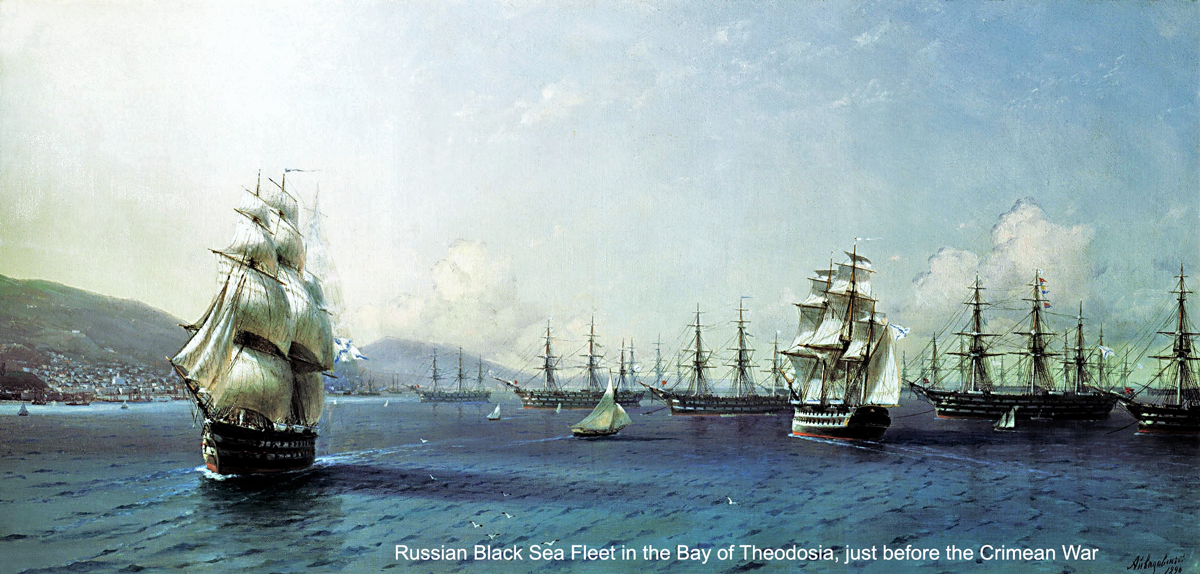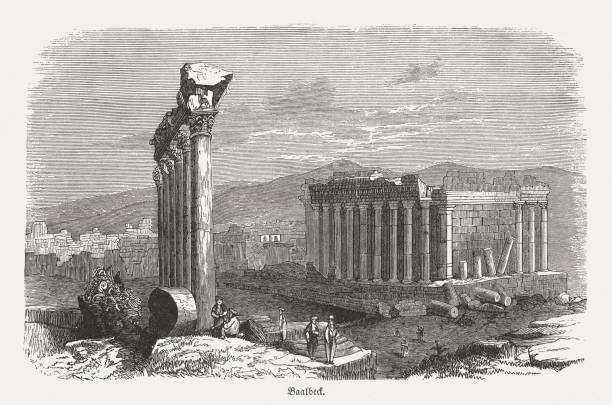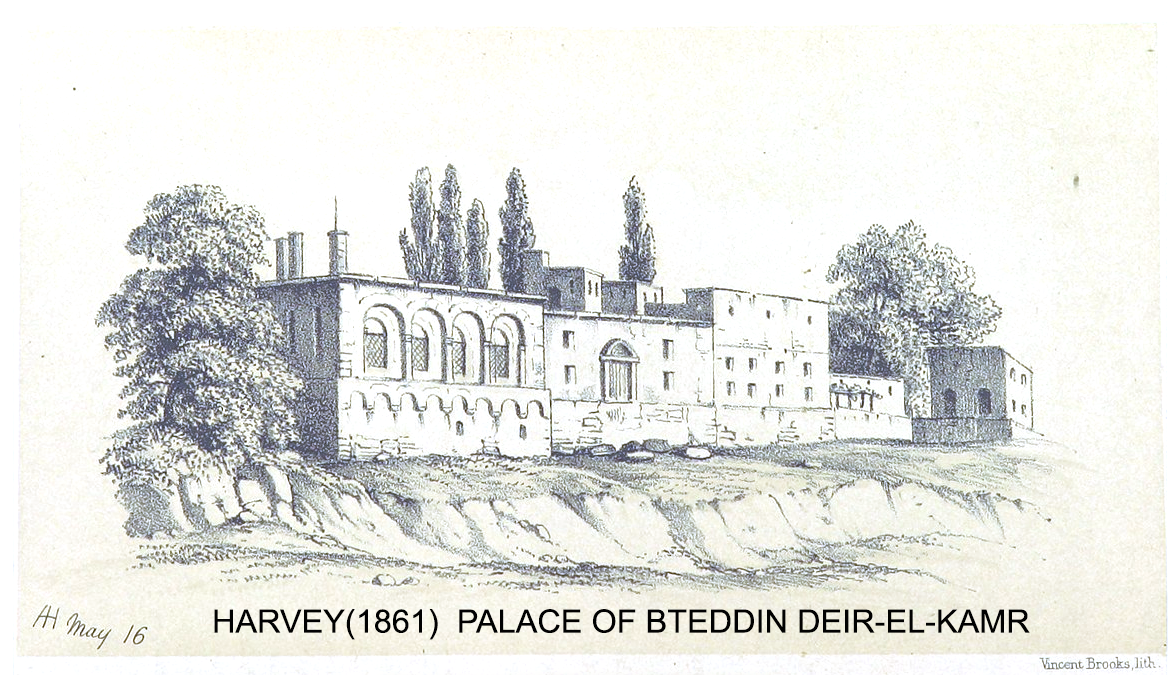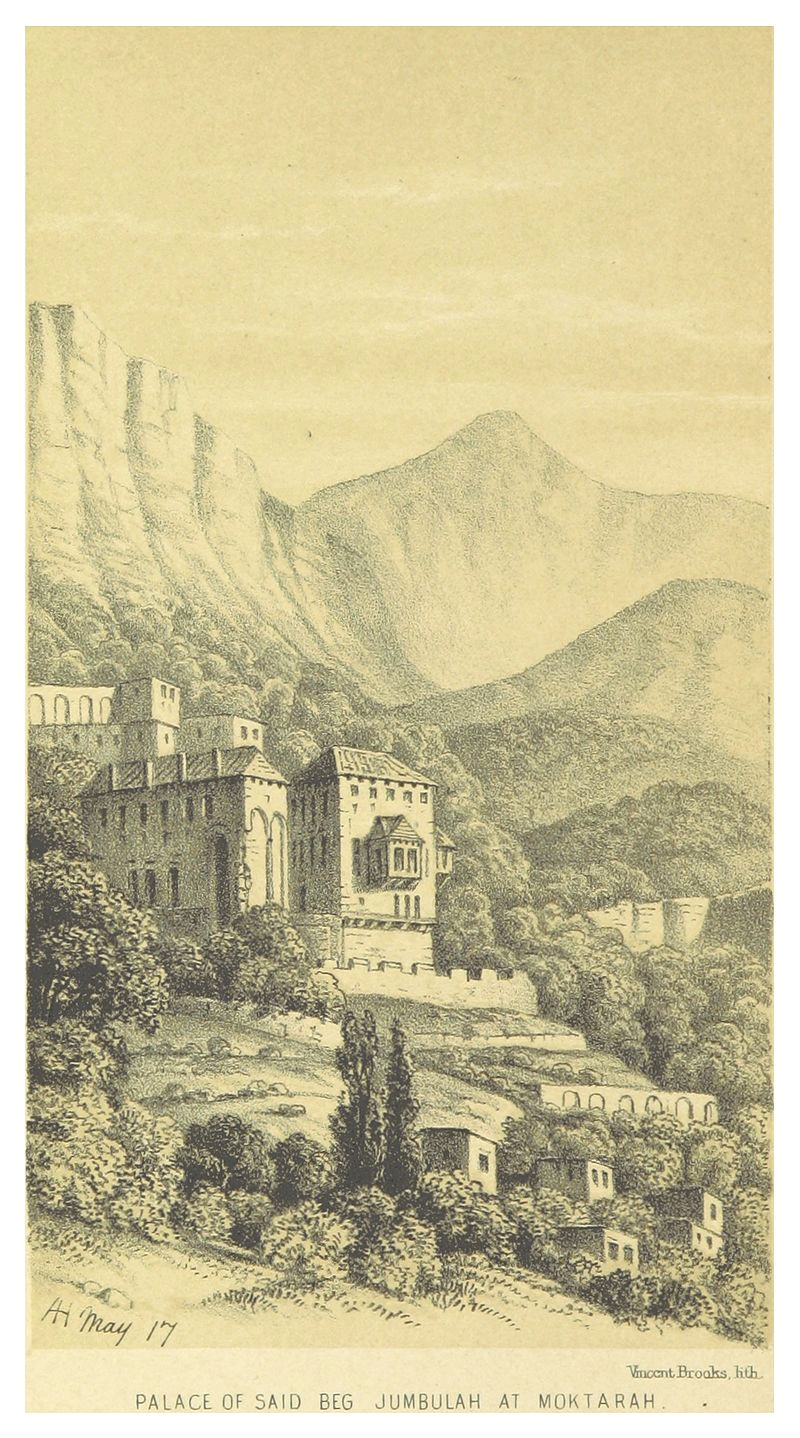
 — he had lived
for many years in Southern Russia, and at the beginning
of that war he was appointed Chief Intelligence Officer
to the British forces, owing to his thorough knowledge
of the Crimea and of the Russian language. After the
war he was made British Consul of the Crimea, and
while there married my mother, who was the daughter
of the Admiral of the Russian Black Sea Fleet.
— he had lived
for many years in Southern Russia, and at the beginning
of that war he was appointed Chief Intelligence Officer
to the British forces, owing to his thorough knowledge
of the Crimea and of the Russian language. After the
war he was made British Consul of the Crimea, and
while there married my mother, who was the daughter
of the Admiral of the Russian Black Sea Fleet.


 From Bteddin we would go on to Mukhtara and visit
the Druse Princes in their palace, surrounded by
magnificent gardens. In front of the palace there was
a large meidan or parade ground, where the game of
jreed is played. This is something like the game called
" Baiting the tiger." The druses play jreed riding on
their magnificent horses, using an oak staff instead of
a spear. Their horsemanship is wonderful and they
are able to dodge a staff hurled at them while going
at full gallop.
From Bteddin we would go on to Mukhtara and visit
the Druse Princes in their palace, surrounded by
magnificent gardens. In front of the palace there was
a large meidan or parade ground, where the game of
jreed is played. This is something like the game called
" Baiting the tiger." The druses play jreed riding on
their magnificent horses, using an oak staff instead of
a spear. Their horsemanship is wonderful and they
are able to dodge a staff hurled at them while going
at full gallop. [click]
[click]